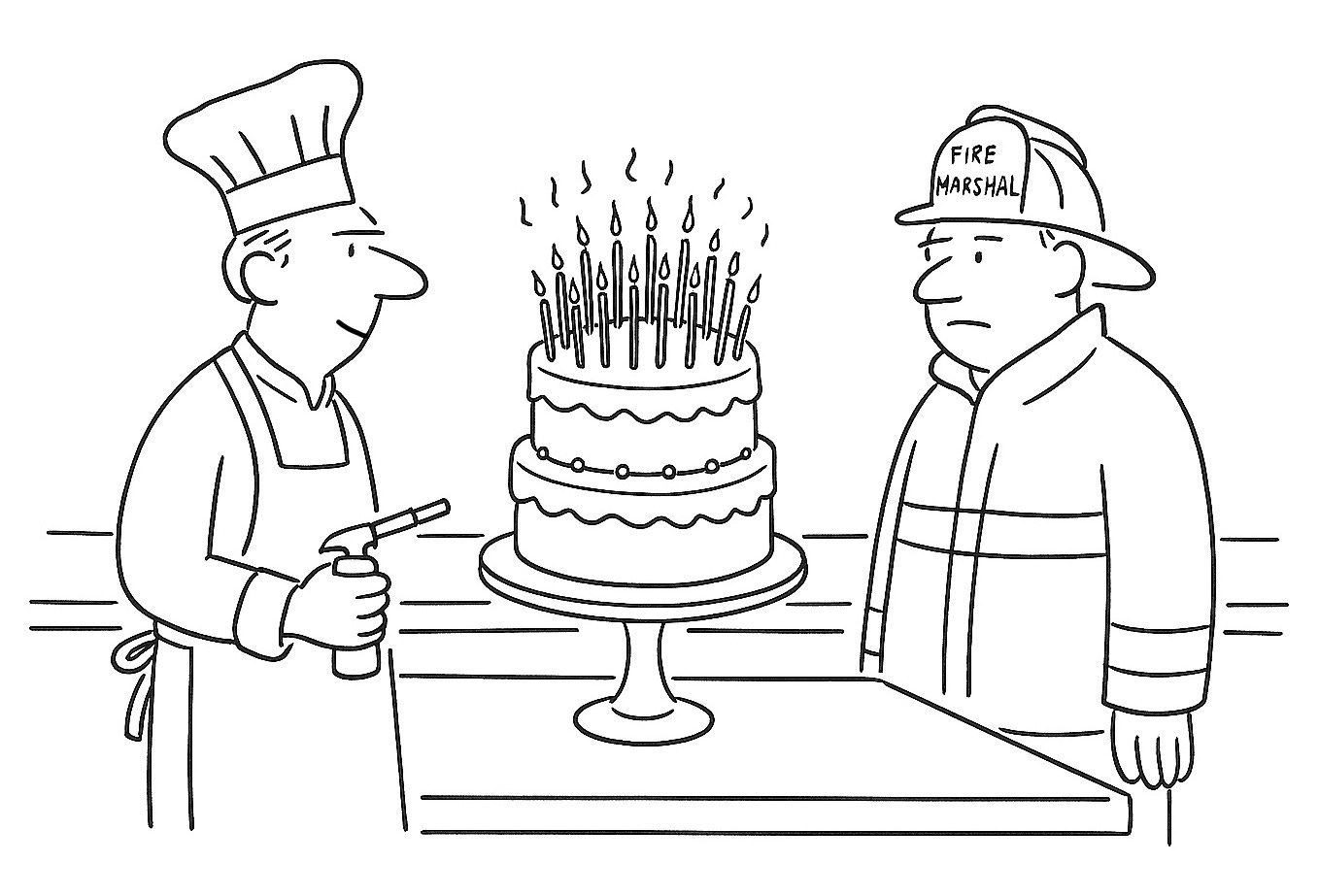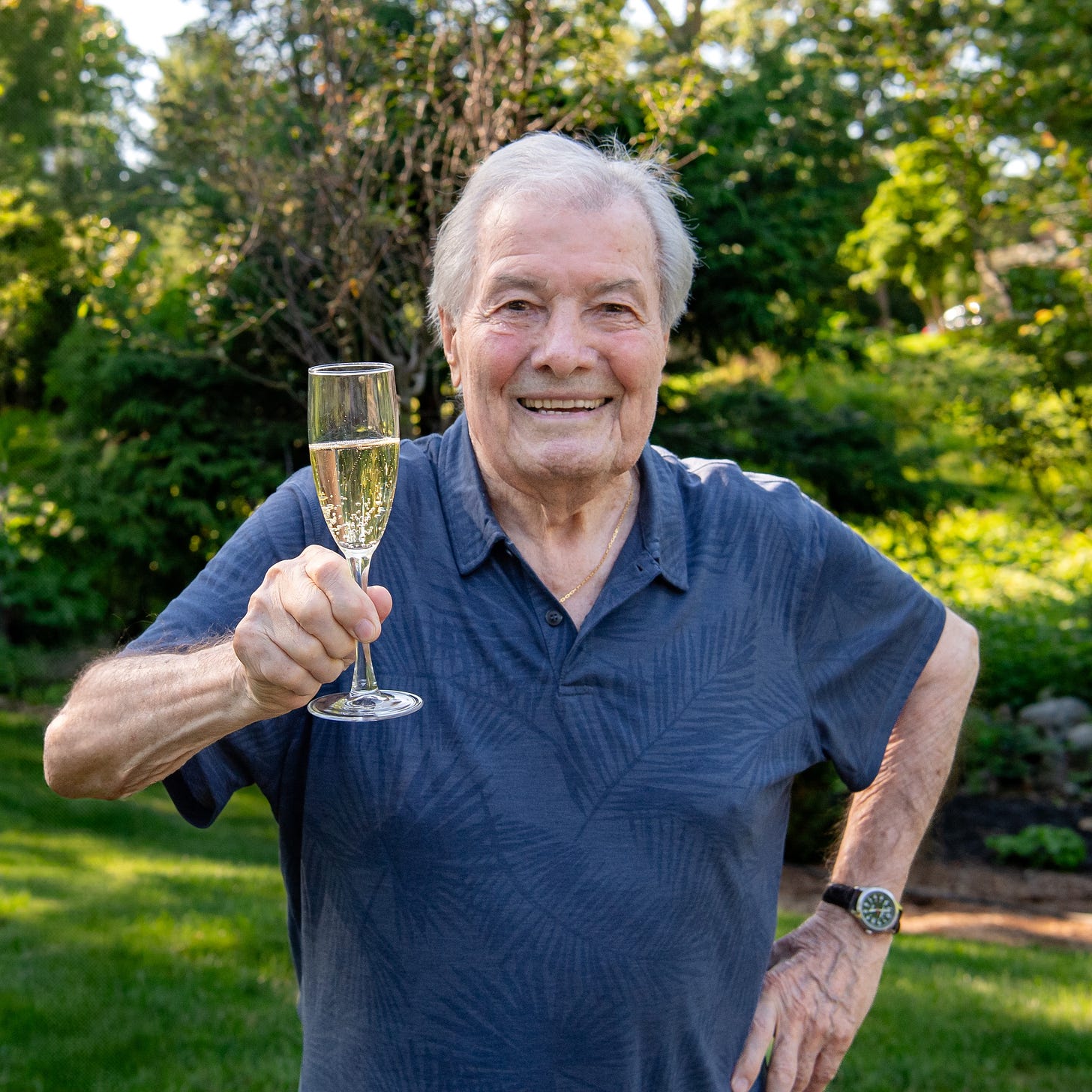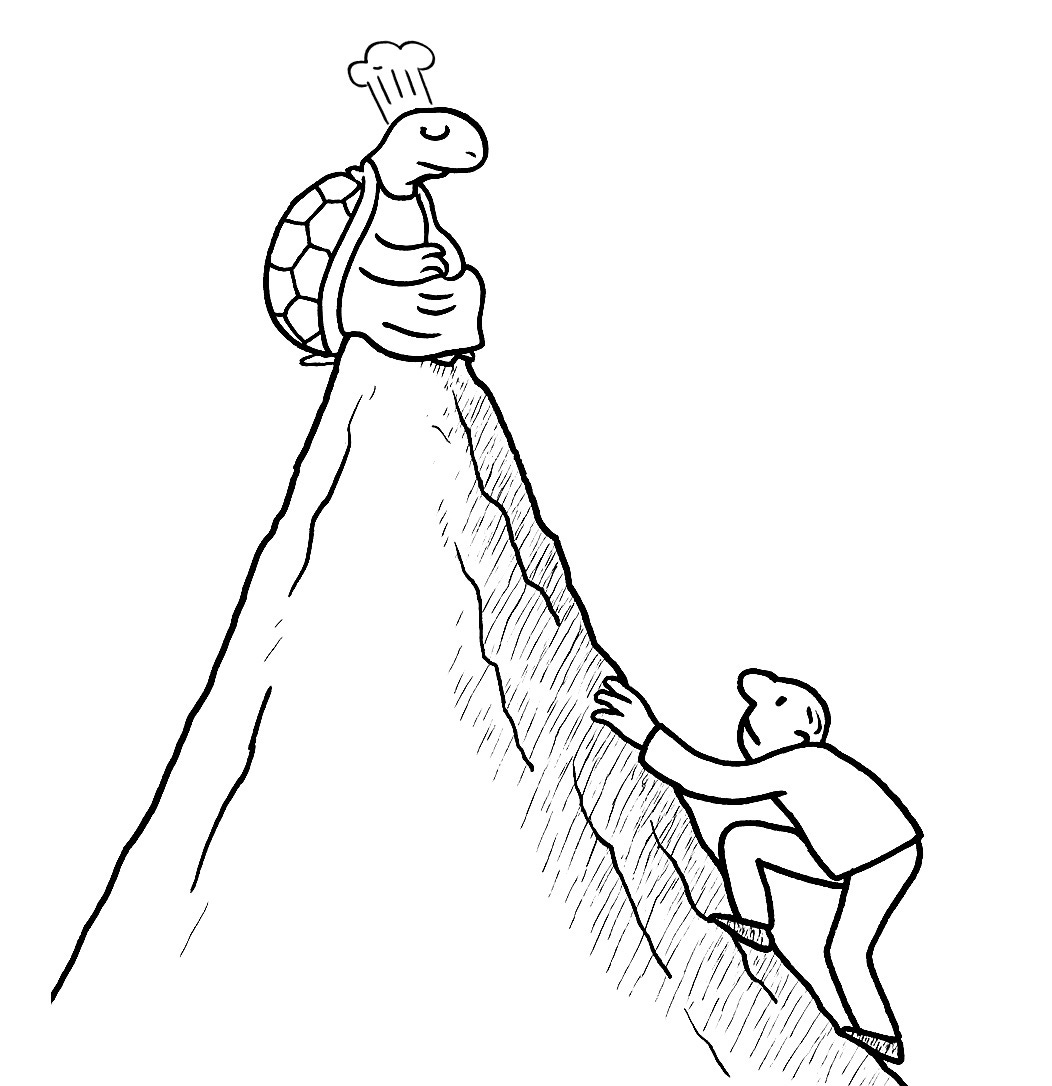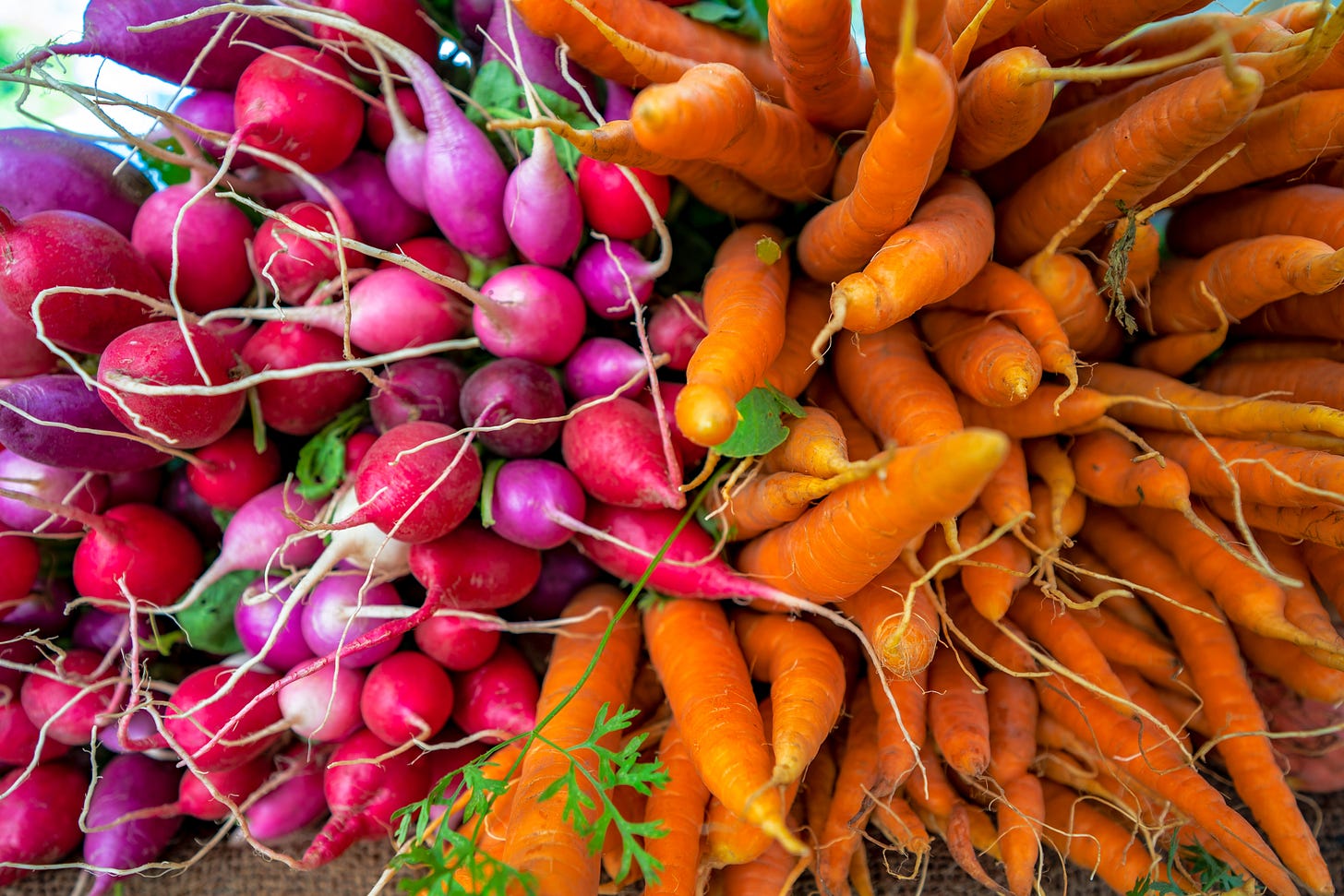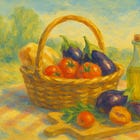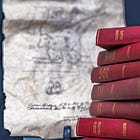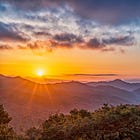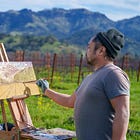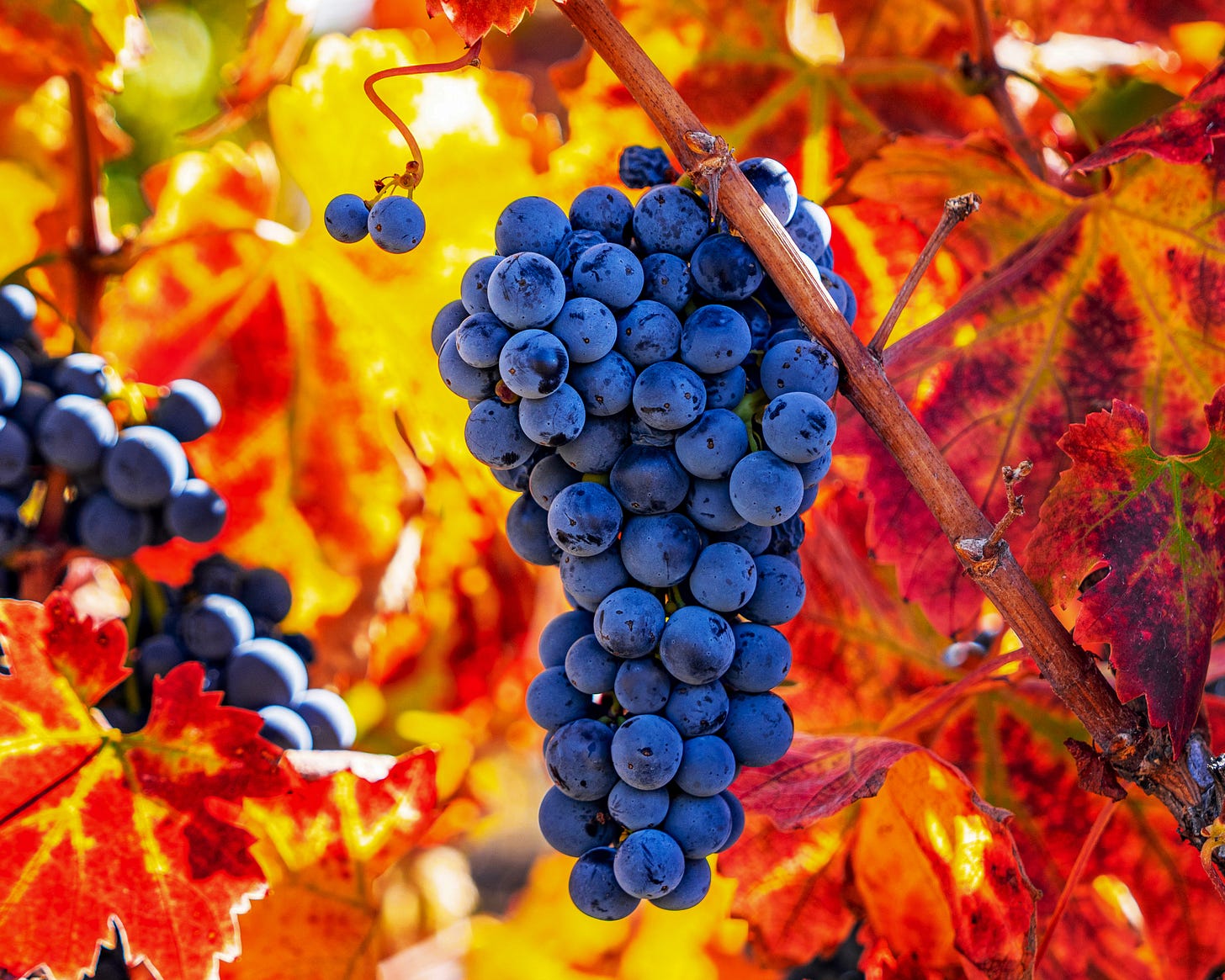Sunday E-dition: Jacques Pépin Marks 90th Birthday With Napa Valley Celebrations
By Sasha Paulsen
NAPA VALLEY, Calif. — After Julia Child, possibly the most influential chef to broaden Americans’ cooking horizons was Jacques Pépin, the French-born chef who had to reinvent his life after a near-fatal car crash – and thereby reached millions through his books, teaching and television shows.
Pépin is turning 90 in December and using the occasion to support the Jacques Pépin Foundation, which was founded with his daughter, Claudine. The foundation is focused on inspiring people to cook and supporting organizations that provide culinary training to adults and youth with barriers to employment, such as low-income, low-skills, homelessness, issues with substance abuse and previous incarceration.
The foundation provides grants, independent research, source and curricular materials, equipment, direct teaching and video instruction to community-based culinary training programs around the United States.
Pépin will attend events throughout the country, including ones in Napa and Sonoma counties. Dubbed “90/90,” it will include 90 dinners and 90 chefs —and a lot of birthday cake.
Pépin, born in 1935 in Bourg-en-Bresse, France, worked in his parents’ restaurant before heading to Paris at 16 to train under Lucien Diat at the Plaza Athénée.
During Pépin’s military service, culinary training and skill became evident, and he went on to become the personal chef to three French heads of state, including President Charles de Gaulle.

In 1959, he moved to New York to work at Le Pavillon, described at the time as the restaurant that defined French cooking in the United States. In his autobiography, Pépin describes how the staff was underpaid and treated poorly by owner Henri Soulé and how, after organizing a protest, he was threatened by organized-crime goons. Pépin was subsequently offered the job of White House chef for President John Kennedy but declined and instead worked for Howard Johnson’s.
In New York, he also met Julia Child, who became a lifelong friend and collaborator.
In 1970, Pépin opened La Potagerie, a soup restaurant and lunch counter on Manhattan's Fifth Avenue. But a near fatal car accident in 1974 caused him to lose the use of one arm and refocus his culinary efforts on teaching and writing.
The result was a prolific array of award-winning books and television programs that included “Julia and Jacques Cooking at Home” with Julia Child, as well as “Cooking With Claudine,” which featured a father-daughter as well as instructor-culinary novice relationship.
Locally, the Jacques Pépin 90/90 celebration events include:
Thursday, Oct. 23: TORC chef-proprietor Sean O’Toole and Kyle Connaughton of three-Michelin-star Single Thread host Pépin and Claudine as they kick off their Napa Valley visit. The dinner will be paired with Napa Valley wines and Stephen Curry’s Gentleman’s Cut Bourbon. A hand-painted Amuse Bouche Winery jeroboam and matching original painting by Pépin will be auctioned off. Pastry chef Lincoln Carson is making the birthday cake, and guests will receive a signed copy of “The Art of Jacques Pépin.” Seats are $1,750 and are available for purchase here.
“I had to reinvent my life after a near-fatal car crash — and thereby reached millions through books, teaching and television.” — Jacques Pépin
Saturday, Oct. 25: Bay Area chefs, including Dominique Crenn, Traci Des Jardins, Darryl Bell Jr., Rogelio Garcia, Tony Gemignani, Roland Passot, Michael Tusk and Alice Waters, will create “Le Grand Pique-Nique” at the Culinary Institute of America at Copia in Napa. A family-style dinner will feature some of Pépin’s favorite foods, including charcuterie, salads, cheeses, roast chicken and more birthday cake. Tickets range from $750 to $1,500 and can be purchased here.
Sunday, Oct. 26: At Cake and Conversation at the Ecolab at Copia, Pépin will share highlights and memories from his career onstage with Claudine and filmmaker Peter Stein, who was his first producer at KQED in San Francisco. Samples of birthday cakes from Bay Area pastry chefs will be available following the discussion. Tickets are $90 and can be purchased here.
Oct. 30: Chef Philip Tessier of Press Restaurant and Under-Study in St. Helena will host The Art of Being Jacques. It begins with a Champagne and canapé reception at the new Museum of Art and Culture (The MAC) for a viewing of the current exhibition, “Julia Child: A Recipe for Life.” This is followed by a four-course dinner at Under-Study, paired with Penfolds wines, including the only North American tasting of the 2021 La Chapelle Grange. This 50-person experience is $2,500 per guest.
Nov. 1: The grand finale is dinner at The French Laundry hosted by Chef Thomas Keller. Seats are $5,000 per person and can be reserved starting Aug. 1. There will doubtlessly be cake.
—
Sasha Paulsen is a journalist and novelist who lives in Napa.
Poem of the Day
Recipe for a Salad
By Sydney Smith
To make this condiment your poet begs
The pounded yellow of two hard-boil’d eggs;
Two boiled potatoes, passed through kitchen sieve,
Smoothness and softness to the salad give.
Let onion atoms lurk within the bowl,
And, half-suspected, animate the whole.
Of mordant mustard add a single spoon,
Distrust the condiment that bites so soon;
But deem it not, thou man of herbs, a fault
To add a double quantity of salt;
Four times the spoon with oil of Lucca crown,
And twice with vinegar procur’d from town;
And lastly o’er the flavour’d compound toss
A magic soupçon of anchovy sauce.
Oh, green and glorious! Oh, herbaceous treat!
’Twould tempt the dying anchorite to eat;
Back to the world he’d turn his fleeting soul,
And plunge his fingers in the salad-bowl!
Serenely full, the epicure would say,
“Fate cannot harm me, I have dined today.”
About the author: Sydney Smith (1771–1845) was an English essayist, Anglican cleric and founding contributor to The Edinburgh Review, celebrated for his wit and reformist zeal. Born in Woodford, Essex, Smith was known for his outspoken criticism of injustice and his sharp, conversational prose. His literary and social circles included figures such as Lord Byron and Thomas Macaulay, and his influence extended into both political and literary reform movements of early 19th-century Britain.
“Recipe for a Salad” showcases Smith’s comic precision and culinary affection. Blending playful rhyme with gastronomic specificity, the poem transforms an everyday recipe into a satire of poetic form and a tribute to the pleasures of food. The measured cadence and clever metaphors reflect Smith’s dual talent for humor and clarity — traits that mark his broader work in public discourse.
Are you a poet, or do you have a favorite piece of verse you'd like to share? Napa Valley Features invites you to submit your poems for consideration in this series. Email your submissions to napavalleyfeatures@gmail.com with the subject line: "Poem of the Day Submission." Selected poets will receive a one-year paid subscription to Napa Valley Features (a $60 value). We can’t wait to hear from you.
Today’s Caption Contest
Pick your favorite caption or add your own in the comments below.
Possible Captions:
“The wise accepts one’s mise en place.”
“At the summit of taste, there are no shortcuts.”
“Few reach the top. Even fewer bring a towel.”
“The summit is only prep.”
“Technique is the illusion of effortlessness.”
Last week’s contest results
In “Sunday E-dition: The Soldiers on the Road,” the winning caption was, “Not all who wander are lost — some are just chasing shade,” with 35% of the votes.
“Aaargh, me melanin thanks ye.”
“Not all who wander are lost — some are just chasing shade.”
“A cool patch of common ground.”
“Not all treasures glitter — some cast shadows.”
“The tree is the treasure.”
Last Week
Tim Carl examined the region’s economic slowdown in “Under the Hood: More Signs Napa’s Economy Is Stalling.” He outlined three key shifts — weakening real estate returns, flatlining job growth and declining consumer resilience — that suggest a structural, not cyclical, downturn. Carl reported that Napa’s home prices now far exceed local earnings, job creation in hospitality has stalled below pre-pandemic projections and visitor spending in tasting rooms is falling. He argued that relying on tourism and speculative real estate is no longer sustainable, urging a pivot toward stable, well-paying jobs to secure the region’s future.
Sasha Paulsen reflected on personal and political memory in “The Soldiers on the Road.” Prompted by her son's encounter with armed troops in Los Angeles during a routine drive, Paulsen recounted her own experience with National Guard deployments during antiwar protests at UC Berkeley in 1970. She described the emotional parallels between past and present, and shared a formative moment from her college years involving a young AWOL soldier facing deployment to Vietnam. The essay examined how direct, human experiences can counteract fear and division in politically charged times.
Dan Berger critiqued shifting trends in Napa Valley cabernet in “Wine Chronicles: The Cathiard Vision for Napa Cabernet,” He traced the move away from balanced, age-worthy wines of the 1970s and ’80s toward high-alcohol, fruit-forward styles aimed at scoring points rather than showcasing terroir. Berger spotlighted the Cathiard family’s acquisition of the former Flora Springs property and their efforts to reintroduce structure and regional character through French-trained winemaker Justine Labbé. Their approach includes organic farming, estate barrel-making and vineyard techniques rooted in Bordeaux traditions. The article argued that projects like Cathiard Estate signal a possible return to more classic, food-friendly Napa cabernets.
David Shubin shared practical insights on citrus cultivation in Napa Valley in “Growing Citrus in Napa Valley: Sweet Rewards With a Few Chilly Challenges.” He explained how cold-sensitive citrus varieties struggle in winter, while hardier types such as mandarins and kumquats fare better. The article offered tips on identifying mystery trees, the importance of balanced nutrients and proper soil pH, and common pest threats. Shubin also covered the value of grafting for disease resistance and fruit consistency, highlighting the UC Riverside Citrus Clonal Protection Program. The piece emphasized that even backyard growers might discover the next standout citrus variety.
Arya Adhye examined the return of beavers to Napa Valley in “Beavers: Nature’s Wetlands Engineers Come to Napa.” The article detailed the ecological role of beavers as keystone species and their importance in creating and sustaining wetland ecosystems. Adhye traced the species' historical decline due to colonization and fur-trading, followed by modern conservation efforts that include California’s 2019 beaver-trapping ban and the 2023 “Beaver Bill.” The piece also highlighted local restoration projects along the Napa River and noted recent beaver activity in downtown Napa’s waterways. The upcoming screening of “The Beaver Believers” at the Napa Library was mentioned as part of public engagement efforts.
—





